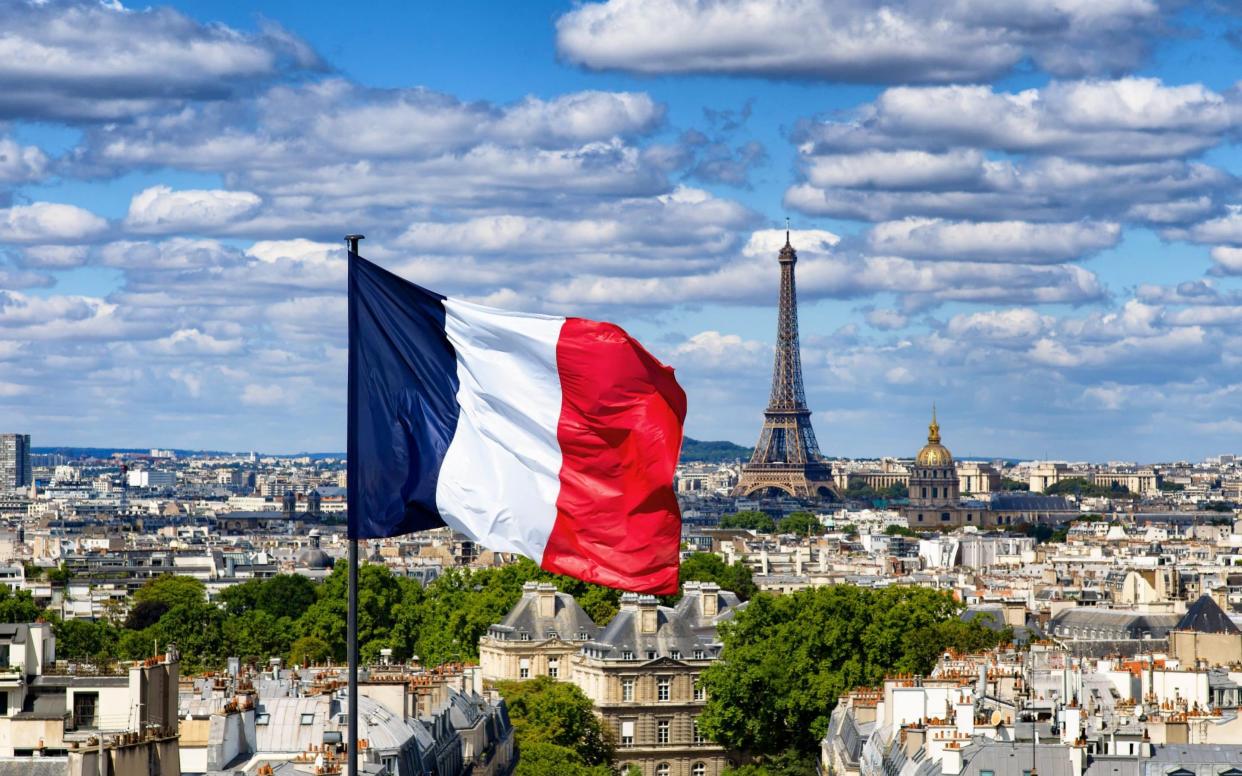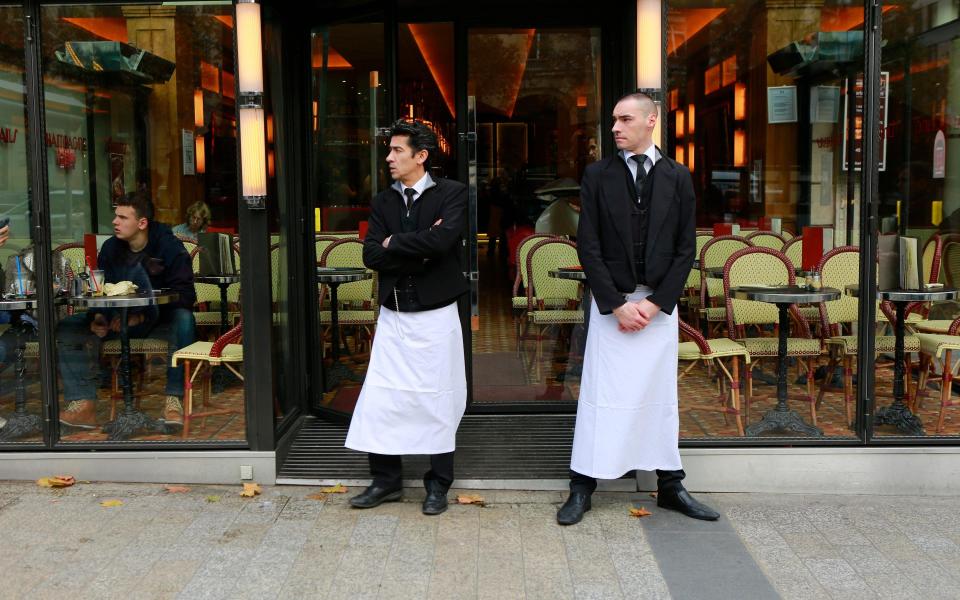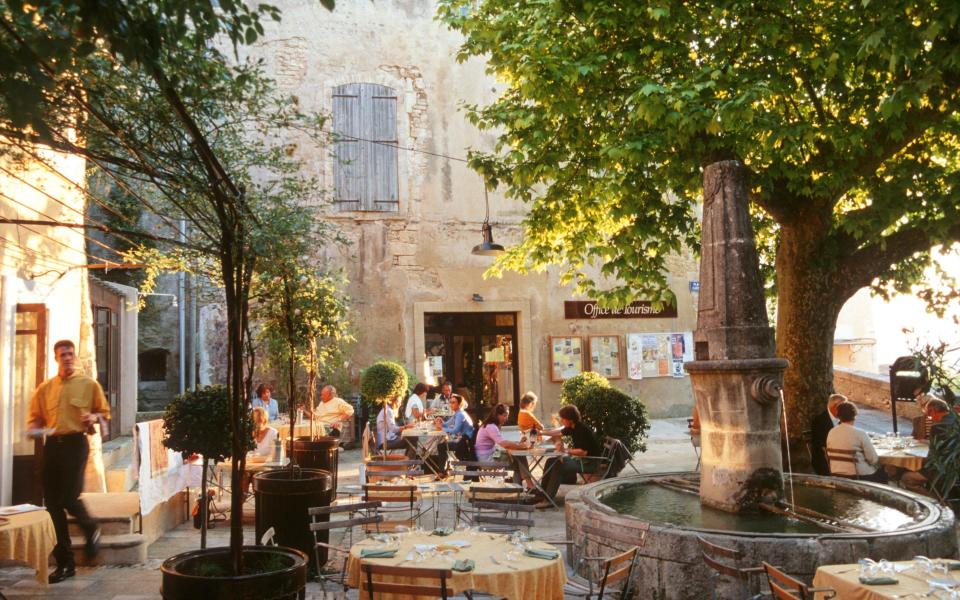I’ve lived amongst the French for 30 years – which of the stereotypes are true?

Brexit, Covid and subsequent kerfuffles have injected renewed vigour to negative Francophobic stereotypes. At last, those who fall in behind Nelson (“You must hate a Frenchman as you hate the devil”) have new excuses to let rip.
The French have disdained our vaccines, tried to steal our finance powerhouses – and let’s not even get started on the fish. Most recently, they’ve had the nerve to slap quarantine restrictions on would-be travellers. Granted, they lifted them for the vaccinated this week, but too late. The damage is done: as if any self-respecting Briton would ever consider setting foot in that cursèd country ever, ever again.
The roots of the resentment aren’t hard to trace. We’re close neighbours, thus long practised in the arts of mutual irritation. In international terms, we’re roughly the same size (population-wise) with similar wealth, and the same aspirations to figure on a world stage where once, as two of Europe’s oldest nation-states, we vied for the top slot.
Conflict, armed or otherwise, was long the default setting for cross-Channel relations. Officially, it all came right with the 1904 Entente Cordiale, which ushered in a formal Anglo-Franco friendship later confirmed in two world wars. But old habits die hard. Proper animosity has staying power, as do the stereotypes upon which it relies. I’ve lived among the French for 30 years or more. I’ve heard them all.
The French are arrogant
Strangely, this is the very same charge laid by many French people against Britons. For them, Brexit simply underlines what a hubristic bunch we are. (Please – I’m not saying that that’s right; I’m merely saying that the sentiment exists.)
All this means is that we are two old nations which have both achieved quite a lot – and think these make us both rather notable. What is worn as pride on the inside obviously looks like arrogance from the outside. Both nations are all the more sensitive to slights now that neither features on the world power podium.
But, as ever, pride has a flipside of uncertainty. Recently, charges of arrogance arose following the disastrous frost which hit French wine-producers in April. Served them right, conceited blighters. “I hope their grapes rot on the vine,” as one well-wisher wrote on this very website. But I know lots of wine-makers. Without exception, they’re proud of their produce – otherwise, they’d be crazy or out of business – but they’re also thrilled when other people like it too. You don’t believe me? Come down to Languedoc. I’ll take you round a few. We’ll be welcomed, have a ball and you’ll note that – give or take a beret, a suntan and an accent – these people are just like you and me.

You’ll also note that most have mastered the rudiments of English. As my French friend Delphine has said: “Farmers, shop keepers, bar staff – all may speak English, even in the countryside. But the British person who can say 'Bonjour' and 'Merci' considers he's bilingual. He assumes that, beyond that, everyone will speak English. Who's the arrogant one?"
The French are rude
I can understand how this idea has got about. Simply put, the French don’t have the same social filters as the British. There are two elements involved. For a start, they haven’t completely got the hang of that self-effacement which says “Sorry!” when someone else bowls you over, the device we use to avoid a scene. The French aren’t frightened of scenes. They revel in them. Look at the French revolution, a hell of a scene if ever there was one. If a person bumps into a Frenchman or woman, it’s the bumper’s damned fault, and they’ll let you know. A fellow in Dunkirk almost nutted me outside the town hall after I’d accidentally jogged his elbow. This may be interpreted as rudeness.
Secondly, in normal social intercourse, the French are far more formal than the British. This is serious and mainly good. All that “bonjour messieurs-dames” on entering shops, and “tu” and vous” depending on degrees of acquaintanceship, keeps a respectful initial distance pleasing especially to the older person. However, and here’s the thing, when matters go even slightly awry, the politeness may easily switch to an equally serious and unflinching resolve not to budge from rule, regulation or established procedure. Or, as a hotel receptionist near Poitiers put it to me: “We have no record of your reservation or deposit, so you don’t have a reservation. We are full. No, I don’t know what you are going to do about it.” This, too, could be construed as rudeness. Or maybe it’s just straight talking.
French waiters are really rude
These people are professionals. They’ll wear bowties and aprons and run tight ships. They’ll deliver 10 drinks to one table, the correct change to three others while also directing a passer-by to the Grand Palais, joking with the wiseacre on table 37, giving advice on vintages to someone else, and then weaving across to take your eight-person order - in English. They’ll hang about until Shirley and Ronald finally decide on a glass of water and a small beer respectively, then weave away again. Then return when you call them back because Shirley and Deirdre both now want a shandy, Ronald wants a big beer, Derek’s going the full Chablis and Pauline’s also changed her mind to tea. All in English. Damned right the waiters grow shirty. Try that kind of malarkey – entirely in French – in Tottenham Court Road and see how you get on.

The French are humourless
No they aren’t. Certainly, they take life seriously, with an un-British respect for intellectual pursuits. Philosophers appear on prime-time TV. It’s almost impossible to say “too clever by half” in French. Nor do they mix the serious – funerals, heart attacks, shellfish, the late Charles Aznavour – with the light-hearted, as Britons tend to. Even when unleashed, their light-heartedness may weigh a ton – or perhaps you’ve never sat through an entire play by Molière. But, once the circumstances are propitious, and it’s clear that joking is in order, the French have a fine, penetrating sense of humour. It is at least as filthy as the British one – they were joking about sodomy on mainstream radio the other day – and perhaps crueller. Charlie Hebdo can make Private Eye read like a parish magazine.
The French are sex mad
Recently, high-profile accusations of abuse have tarnished the lustre of France’s legendary libertinism. This has come as a surprise, especially to chaps of a certain age. It’s interesting to see them caught in the glare for offences they had never thought offensive. But we are talking of a minority. I’d still say that the French were less traumatised by sex than Britons, conceivably because they lack a tabloid press to raise the alarm. French people are increasingly conscious of abuse, but also live easy and unembarrassed with acceptable sexual activity. The concept of smuttiness makes little headway in France; “nudge, nudge, wink, wink” remains untranslatable.
The French are lazy
If they’re not on holiday, they’re usually on strike. Should you want to catch them working, there’s only a half-hour weekly window. Thus runs the stereotype. And, certainly, the French toil fewer hours a year than Britons. They’re also talented at striking. In the decade to 2019, the French averaged an annual 120 days on strike per 1,000 employees. The UK figure was nearer 20. Yet, overall their economy trails the UK’s by almost nothing. So the lazy devils aren’t doing everything wrong. Certainly, their trains, health service, and luxury and tourist trades are spot on. There’s probably a case for saying that if they worked longer and struck less, they’d be even more of an international handful.
The French are ill-disciplined
Combustible, for sure. British protestors chant: “Make tea, not war”, French ones charge the riot police and burn cars. Theirs is a culture which struggles to resolve big issues without breaking heads (or chopping them off). But most people most of the time are surprisingly civilised. Case in point: stroll the centre of any French city at 11pm, Saturday night and everyone’s out, families through young adults to grandparents. No-one is reeling about half-dressed, throwing up in the flower beds, shouting obscenities or chucking bricks at the war memorial. Compare and contrast.

The French are ungrateful
Post-war, the French journalist, Paul Hutin-Desgrées described Britain as “this great nation which is so dear to us since, alone against determined demons in 1940, it held in its hands the torch of liberty – a lamp (which was) guttering and threatened and almost out of oil but which British blood maintained alight”. The sentiment gets buried beneath contemporary polemics, and may be less flowery these days, but it remains widespread. I don’t know any French person who wouldn’t agree. You’re doubtful? When it becomes possible, travel to the Normandy beaches – especially to the new British Memorial, inaugurated last weekend at Ver-sur-Mer above Gold Beach – and then onto the Great War’s Western Front. The real friendship surfaces in these parts. So does the recognition that, on all significant matters – freedom, democracy, tolerance – French and British are on the same side.
The French don’t like us
First, see directly above. Second… well, certainly, the French may be puzzled by binge-drinking, all-day snacking, cricket and the blue hair affected by British girls. They get exasperated on fish, rugby and that sort of thing. They may further be unsure whether Britain is the Britain of a Ken Loach film (sink estates, roll-ups, unemployment, etc), of Downton, or of rabid futures traders wrecking economies and coining millions a minute. But then, when they think of us at all, which isn’t surprisingly often, they appreciate our TV shows, the city of Edinburgh, the monarchy, rock music, soccer, kilts on Scotsmen, comedy (“Monty Peeton!”), fish n’ chips, Shakespeare and Agatha Christie, a stiff upper lip and sense of fair play (both also untranslatable into French), pubs, tweed and the full English. They’re also keen on the politeness, appreciation and cash we bring when visiting their country.
Despite ups and downs, then, the French generally like us. Most of them are, in turn, pretty easy to get on with. If I’ve managed it, anyone can. Let’s move on to the next problem.


